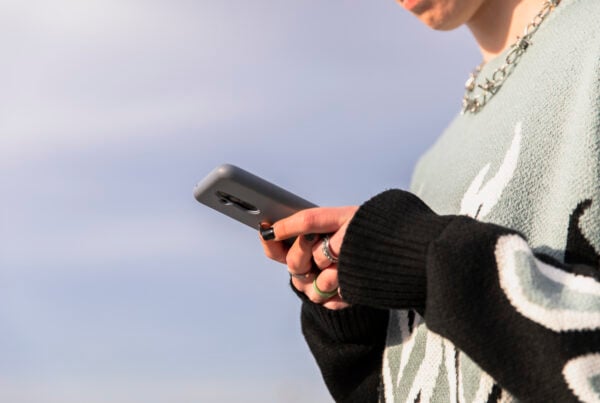 Each week the MEF team curates mobile stories from around the world. Essential news, the latest market insight & data nuggets, the Global News Round-up offers an instant international mobile content and commerce snapshot.
Each week the MEF team curates mobile stories from around the world. Essential news, the latest market insight & data nuggets, the Global News Round-up offers an instant international mobile content and commerce snapshot.
Global News Stories
Health features for Apple Watch dramatically scaled back after repeated failures, report says
VentureBeat
After attempting for years to create a wearable device that would focus on health and fitness, Apple was forced to fundamentally change its vision for the Apple Watch when many of the features simply didn’t work.
That news comes via a report today in the Wall Street Journal in a story that asks: “What exactly is an Apple Watch for?” It’s a good question that Apple is still struggling to answer. However, it’s worth noting that the same question was being asked between the unveiling of the first iPad and the start of its sales a few months later.
People who own connected cars actually use their features and really enjoy them
Business Insider
Survey data shows most people still don’t know what connected cars are or what they can do, but a separate survey of current connected car owners shows some promise for the category. Based on Nielsen data charted for us by BI Intelligence, roughly half of those who own a connected car actually use its unique features, like in-car entertainment and streaming media, and those who use these features frequently show high levels of satisfaction.
Read More… (report)
Sony opens pre-orders for its $840 Google Glass alternative
The Verge
Dual screening is now done by 44 per cent of consumers at least once per week, according to Yougov research on behalf of Responsys. The survey, featured in the 30 Seconds or Less whitepaper, found that 25 to 34-year-olds are most likely to do it, with 26 per cent dual screening every day. Meanwhile, 64 per cent of over 55s say that they have never done it.
African mobile money could produce $1.5-billion in fees alone by 2019

Memburn
According to a report released by The Boston Consulting Group (BCG), the use of mobile financial services in sub-Saharan Africa to perform tasks like pay utility bills and send money to relatives could produce an estimated US$1.5-billion in fees for mobile-money providers by 2019. With mobile based financial services, be it remittance, paying utility bills or purchase, offering convenience and spreading like a disease in Africa as a whole, it is no secret that traditional banks are shaking on their feet. The banks that have seen the trend and are moving in the same direction are poised to be not only trendsetters but in the long run will reap the benefits.
 China, Turkey and UAE dominate smartphone shopping: PayPal
China, Turkey and UAE dominate smartphone shopping: PayPal
Mobile Commerce Daily
s mobile commerce continues to outpace general ecommerce, consumers in three countries – China, Turkey and United Arab Emirates – are currently dominating smartphone shopping, according to a new report from PayPal and Ipsos.
Emirati online shoppers direct on average 24 percent of their online spend to smartphone purchases, while Chinese consumers follow closely behind at 21 percent and Turks come in third at 19 percent. These findings suggest a strong future for the prevalence of mobile commerce, proving that marketers should take note and offer mobile-first shopping experiences.
Samsung just bought the one payments company that could be bigger than Apple Pay
Business Insider
Samsung made one of its smartest acquisitions ever Wednesday by buying the mobile payments startup LoopPay.
LoopPay is still in its early days, but its technology gives it the potential to be bigger than Apple Pay once it’s implemented in a major device made by Samsung.
It’s pretty simple: Apple Pay only works with special payment pads that use near field communication (NFC) technology. NFC has been around for years, but relatively few retailers have it on their sales terminals. So far, Apple says Apple Pay is supported at over 200,000 retailers in the US, but major retailers like Target, Best Buy, and Walmart don’t accept Apple Pay and haven’t said if they ever will.
1.2B Smartphones Sold In 2014, Led By Larger Screens And Latin America

TechCrunch
Apple is reaping the biggest rewards right now when it comes to selling its smartphones and other devices, but the overall picture for the smartphone market in the year ahead may be a little less rosy. According to the analysts at Germany-based GfK, in 2014 there were 1.2 billion smartphones sold, up 23% on the year before and crossing the billion-unit point for the first time. But they predict sales will slow down to 14% growth in 2015, working out to total sales of 1.368 billion devices.
The reason? More countries are reaching their smartphone saturation point, and so the industry is looking ever more for growth in two places: emerging markets where smartphone adoption is still at an early stage; and among consumers flocking to buying newer models with larger screens.
20 more banks and credit unions sign up for Apple Pay
VentureBeat
There seems to be no shortage of banks that want to support Apple Pay, and 20 more have just signed up for the mobile payments service.
Apple chief executive Tim Cook said the other day that 2015 would be the year of Apple Pay. He, of course, knew some things that we didn’t know when he said that.
Morgan Stanley is perhaps the best known of the banks that have just signed up. The investment bank issues premium credit cards to its wealth management services customers. Now those wealthy customers can add their cards to Passbook on their iPhones for mobile payments.
Big opportunity in cancer care for mHealth, but patients must drive it forward
Fierce Mobile Healthcare
Mobile healthcare technologies have an opportunity to contribute to cancer supportive care, but as of now are primarily patient-driven and limited in use and scope, according to a new paper published in the Journal of Medical Internet Research.
One reason is that patients have what researchers describe as an “enhanced role,” when it comes to care processes. Creating new models of care that integrate caregiver and patient involvement will require both to embrace and adopt mobile technologies, according to researchers who assessed and reviewed 106 pieces of literature regarding the use of mHealth in cancer care and cancer supportive care.
Global News Round-up – These articles are not written by MEF and do not represent any views of individuals, members or the organisation.



/cdn0.vox-cdn.com/uploads/chorus_asset/file/3417204/sony-2.0.jpg)






